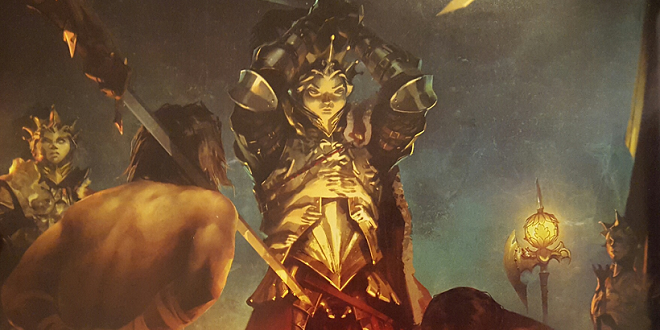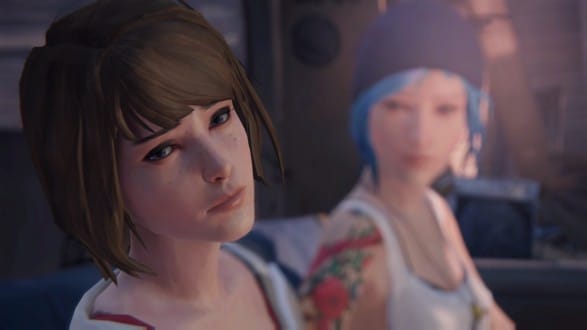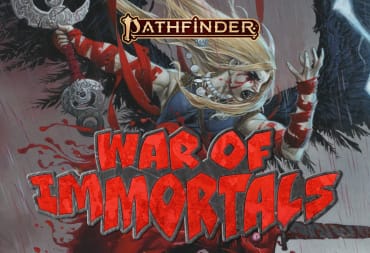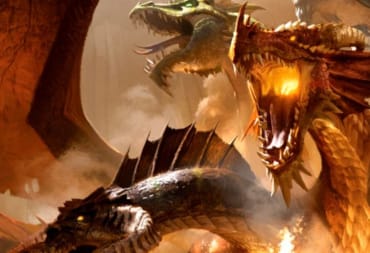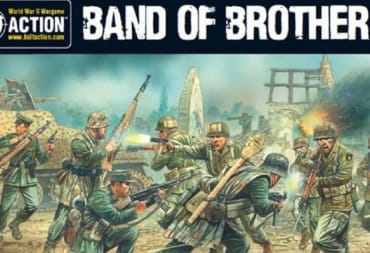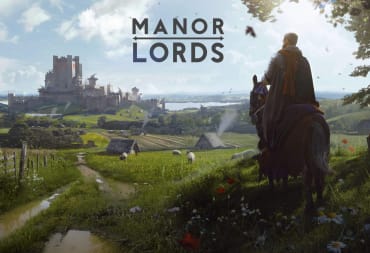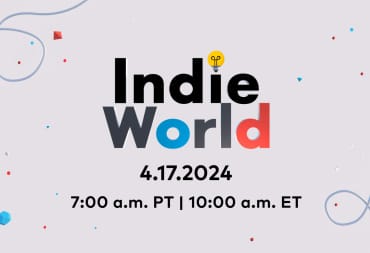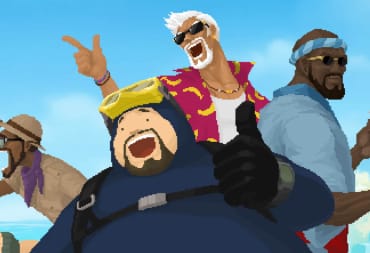As part of our ongoing Theme Week for January of 2016, we are looking back at some of the good and bad things about 2015. This time we wanted to know what our writers thought about some of the more emotional moments in a game, or what games brought out the emotions in them. Here's their answers and stories to that question.
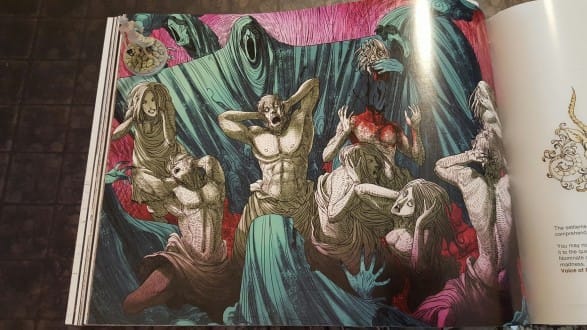
Kingdom Death: Monster by Travis Williams
When talking emotional impact in gaming, not many people think about board games. Sure, a few laughs and maybe a bit of anger and some temporary grudge holding as you plot your revenge against the family member that just screwed you over, but rarely, if ever, do we associate sadness, anxiety, and fear with the world of cardboard, plastic, and dice. Kingdom Death: Monster changes that.
From the very first moments of play, Kingdom Death: Monster throws its players into a desperate struggle for life and death. It is not only possible, but entirely likely, that characters will be killed in the tutorial mission, and the game doesn't ever relent. Death, injury, brain damage, disfigurement, isolation, banishment and hardship await, ever present, around every corner and in every nook and cranny of the game's world.
The hook is that players control not just one survivor each, but an entire colony of survivors, including new survivors that will be born to those that live long enough. The brutal struggle between life and death, and the possibility that nearly any survivor can be killed at a moment's notice, encourages players not to get invested in the lives of individual survivors, but it's impossible not to.
Many survivors get injured or impaired, but there are those who get stronger, and those who succeed in spite of their injuries. Each scar, injury, and impairment writes another chapter in that survivor's story, leading players to care about them, and truly fear for them when they are put in harm's way. Losing a favorite survivor is a punch in the gut, losing a whole colony is devastating.
Kingdom Death: Monster doesn't put you in charge of a settlement with some survivors, it puts you in charge of your settlement, and your survivors. Their lives are in your hands, and it's up to you to see them through to safety, a prospect that is all at once thrilling, terrifying, satisfying, and heartbreaking.
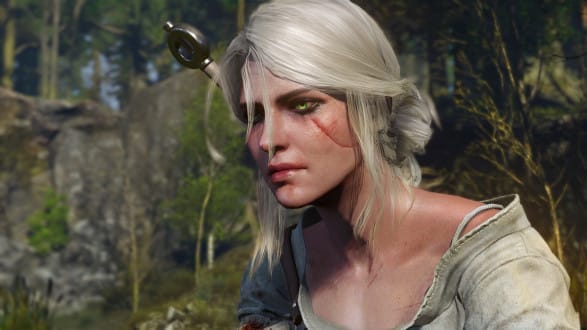
The Witcher 3: Wild Hunt by Christopher Anderson
The Witcher 3: Wild Hunt got many a prize during 2015's end of the year shenanigans, and for good reasons! The game set a new benchmark in what high-fantasy open-world RPG's should be and managed to entertain me for about 150 hours before I finished all the game's main and side quests. I bought this game on a whim and I wasn't sure if I was going to like it based on less than optimal experiences with the previous 2 games in the series, but there's one moment that melted away my insecurities: the Family Matters questline. Here be spoilers.
This questline, which pops up right after you're done with the game's tutorial, introduces you to a colorful character called the Bloody Baron, a man that is reluctantly thrust in the role of ruler over the province of Velen that's left in ruins after an ongoing war left the countryside a broken mess of despair and poverty. As you get to know this man, you get to peer underneath his gruff demeanor and find a surprisingly real feeling human that has the weight of his checkered past on his shoulders. He copes by drinking heavily, and his drunk behavior pushes his beloved wife and his daughter away from him, which, as these things often go, leads to more drinking. As the questline goes on, you find out about the Baron's biggest regret: beating his then pregnant wife in a drunken rage, which resulted in a miscarriage. The fetus was never properly buried, which turned the dead fetus into a murderous monstrosity called a botchling.
You're given the choice of either killing the botchling or help the Baron with lifting the curse. I chose the latter, and what followed was a harrowing chain of events that turned into something beautiful in the end. A man finds solace, knowing he did right by a child he did wrong and your involvement shows the Baron the error of his ways, leading to the decision to get his act together.
It was the conclusion to this questline that made me realize that The Witcher 3: Wild Hunt was something special. The game is fully able of giving you these well-crafted and well-written stories that make you forget that you're playing a video game that doesn't feature real people and that manages to inspire sympathy and genuine sadness for these characters. There are several other moments—like a scene where a character performs necromancy—that manage to either tug on your heartstrings or make you extremely uncomfortable, and all are memorable and worth experiencing.
Life is Strange by Luigi Savinelli
Life is Strange will always remain a big mistery to me.
I bought it under sheer pressure of a friend of mine. I caved in during the latest Steam Sales. After one hour or so of gameplay, I could summarize the whole experience in "Hipster: The Movie: The Game." I liked the writing, but at times it seemed a bit off. I liked the characters, but at the same time I hated the fact that every single one of them was the embodiment of some kind of stereotype or trope about American school life and/or small towns. At the end of the day it was a great title, but there were a lot of things about it that weren't perfect.
Then why the hell did it hit me that much?
I consider myself an emotional man, but I tend to not show it on the outside. This game had me on my knees (figuratively) in a couple of points in the storyline. Yes, the characters are stereotyped and sometimes even a bit bland, but the more you go on the more you realize that there's nothing one-dimensional about them. They are very capable of being complex and interesting. You start really caring about some, hating others, feeling sorry for most.
The narration has its weak moments, but when it goes hard, it punches you in the guts like Iron Fist teamed up with Hellboy after being trained for a week by Captain Falcon. There's one thing I hated about the final choice (which I will not say here to not spoiler it), but despite that, it had an impact so hard that I still think about it, more than a week later. When I finished the last episode, I actually had to lay down and rethink the whole journey.
If you didn't play Life is Strange and don't mind heavily narrative-oriented games or wiping tears and snot from your clothes, I'd say give it a shot. For me, I'd love to erase that whole experience for my brain to live it again.
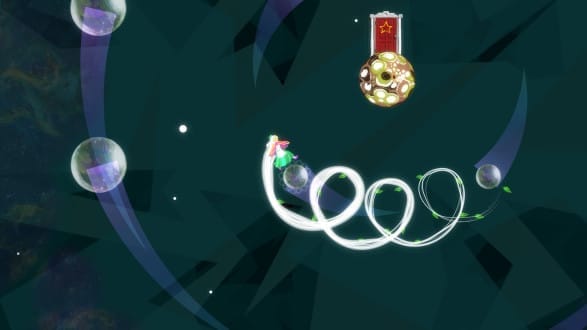
Gravity Ghost by Don Parsons
While I tend to tear often when I get frustrated or upset, my approach to most things in fiction tends to be analytic as a writer and creator myself meaning I don't tend to get as wound up in the feelings as many do. Very few movies, books, or games manage to really tug at my heart strings—perhaps in part because I'm often looking at it from that point of view which makes it harder to appeal to emotion in general. Gravity Ghost managed to get past my defenses somehow, though, and is one of the few titles that I can say had me in tears by the end.
Gravity Ghost might first stand out with its beautiful crayon art aesthetic that is entirely its own, which helps underline many of the game's themes and elements. The second thing you probably will notice is that Gravity Ghost has one of the most unique sound tracks you will hear, which manages an odd and uniquely haunting melody at times that always seems to fit the moment. The music manages to carry much of the emotions of a game that often prefers to say little and show as much as it can in small, simple segments that engage the player. However, while Gravity Ghost's art and music were excellent, they only served to support two other elements that really managed to combine with them to create the emotional impact of Gravity Ghost.
The first was its gameplay. Gravity Ghost describes itself as a simple gravity physics hopper, which is just about right. There isn't too much complexity to the gameplay, although it does introduce new elements, but the relaxed pace of play and flowing gravity movement through space work perfectly with the art and music. It creates an experience that is very relaxing, something that is the opposite of many "emotionally engaging" games that often try to overwhelm you with stuff.
The second aspect is that Gravity Ghost has a beautifully told story that was simple in its elegance but incredibly touching. Gravity Ghost's story is that of a young girl, and it isn't trying to be any grand epic or anything else but is in essence a story of coming to terms with mortality, consequences, and life. It's told through the eyes of a child, with a child's innocence and style.
Simply put, it's a wonderfully told story and it managed to really touch me deeply in 2015.
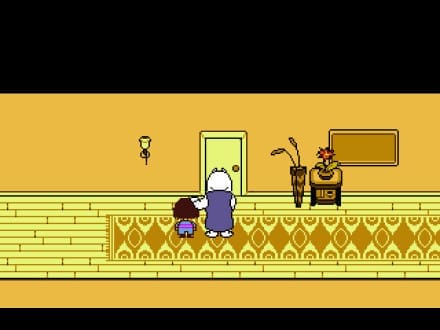
Undertale by Alex Santa Maria
Between our Game of the Year awards and my review of the game, I’ve written a lot about Undertale for TechRaptor in the last few months. You’d think I’d tire of the game at some point, as I have for many things in the past that have been overexposed. I have not tired of it. Months later I still listen to the soundtrack on a regular basis, I seek out YouTubers playing it for the first time, and its metanarrative has sparked my creative side in a way that other games have simply failed to do. It speaks to me on an intellectual level without shutting out additional audiences by being too precious about its own universe. I adore Undertale, and that feeling would be impossible to achieve without the game’s exquisite and subdued character work.
Simply put, the characters of Undertale are some of the most well-rounded and believable characters that have ever been presented in a game. Despite their fantastical outer appearances, Papyrus, Sans, and the rest all have a human core that games will need much more of in the future if they ever want to become the great engines for storytelling they could be. I’m not someone who seeks out depressing experiences in my games, and I’m not someone who appreciates the blatant emotional manipulation that many narrative games specialize in. Undertale has none of that, instead working with the player to tell the story they want to tell in the way they want to tell it.
To connect with me as a player, a game must surprise me and let me play off of it the same way I can with a fellow human being. A tall order to be sure, but Undertale never let me down in this regard. Every dumb thing I wanted to do was accounted for, and the few story beats I didn’t care about were simply ignored instead of forced down my throat. It truly was a joyous experience, and that’s the feeling I most want out of my games.
Have a tip, or want to point out something we missed? Leave a Comment or e-mail us at tips@techraptor.net
